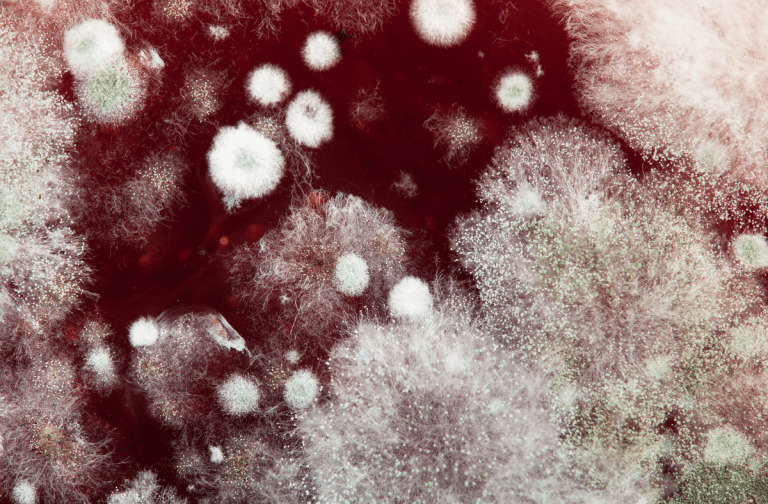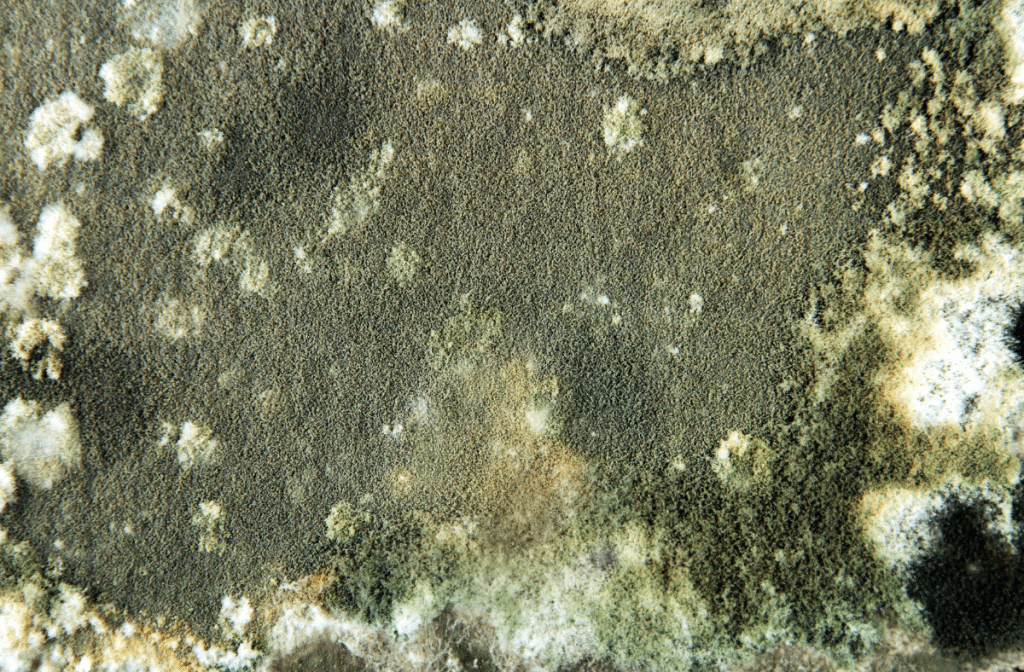
WAKING UP TO MOULD AND ITS IMPACT ON YOUR HEALTH
with Reine DuBois
Allow me to share a recent personal experience that vividly illustrates the immediate and tangible effects of mould exposure. During a recent stay at a hotel on New Year’s Eve, my husband and I were assigned a ground-floor room in an old building with no opening windows or natural light. Almost immediately upon entering the room, a musty odour signalled the presence of mould. It was evident that this was the last available room for the night, leaving us with a challenging predicament.
Within just five minutes of being in the room, a throbbing headache began to set in. Concerned about the potential health risks, I speculated whether adjusting the air conditioning unit to a dry setting might alleviate the humidity in the damp environment. To my dismay, upon inspecting the air conditioning unit, I discovered it was also infested with mould. The situation escalated further when, within 15 minutes, my husband’s hay fever symptoms kicked in, emphasizing the severity of the mould issue.
The Hidden Threat: Mould is ubiquitous, lurking in various corners of our homes, workplaces, and even in the air we breathe. While not ALL moulds are harmful, certain types produce mycotoxins – toxic substances that can pose serious health risks when inhaled or come into contact with the skin. Common symptoms of mould exposure include respiratory issues, headaches, fatigue, and allergic reactions. If left unchecked, chronic exposure can lead to more severe health conditions.
Respiratory Woes: One of the most common health issues associated with mould exposure is respiratory problems. Mould spores can become airborne and enter our respiratory system, triggering or exacerbating conditions such as asthma and allergies. Individuals with compromised immune systems or pre-existing respiratory conditions are particularly vulnerable, as mould can aggravate their symptoms and lead to persistent coughing, wheezing, and difficulty breathing.
Allergic Reactions: Mould spores are potent allergens that can cause allergic reactions in susceptible individuals. Sneezing, runny nose, itchy eyes, and skin rashes are common manifestations of mould-related allergies. For those with heightened sensitivity, exposure to even small amounts of mould can provoke these allergic responses, impacting their overall well-being and quality of life.

Mycotoxins and Long-Term Health Effects: In addition to triggering immediate allergic reactions, certain moulds release mycotoxins that can have long-term health effects. Prolonged exposure to mycotoxins has been linked to neurological issues and immune system suppression. While research in this field is ongoing, there is growing evidence suggesting a potential connection between mould exposure and chronic health conditions.
Identifying the Culprit: Recognising mould-related health issues begins with identifying the presence of mould in your living environment. Common hiding spots include damp basements, bathrooms, and areas with poor ventilation. Pay attention to musty odours, visible mould growth, and water damage, as these are indicative of a potential mould problem. Regular inspections and prompt remediation of any mould issues are crucial for maintaining a healthy living space.
Mitigating the Impact: To minimize the health risks associated with mould, it’s essential to address both the root cause and the symptoms. Proper ventilation, controlling humidity levels, and promptly repairing leaks can help prevent mould growth. Investing in dehumidifiers and air purifiers can also aid in maintaining a mould-free environment.

Promptly realising the urgency of my accommodation situation, I approached the hotel reception to request another room. To my relief, the staff member was understanding and empathetic, acknowledging the gravity of the issue. She managed to find us an alternative room on the third floor, and within 10 minutes of vacating the mould-infested environment, my headache began to subside.
Reflecting on this experience, it became evident how crucial it was to address the issue promptly. The potential load on our respiratory system, nervous system, and immune system if we had endured a night in that room was unimaginable.
The immediate relief upon leaving the mouldy environment highlighted the profound impact such conditions can have on our well-being, reinforcing the importance of being proactive in identifying and mitigating mould-related risks.
While mould might often be overlooked as a health hazard, its impact on our well-being should not be underestimated. By understanding the potential dangers of mould exposure, we can take proactive steps to create a healthier living environment. Regular inspections, timely remediation, and maintaining proper ventilation are essential in mitigating the risks associated with mould, ensuring a safer and more comfortable space for ourselves and our loved ones.

Reine DuBois is an Integrative Naturopath and Clinical Director at The Health Lodge. As an Integrative Naturopath, Reine possesses an exceptional capacity to see and understand the intricacies of the human system. She is well-known for uncovering complex health conditions and coordinating treatments for chronic health issues.
To learn more about Reine and her offerings, click here
Or book online here


